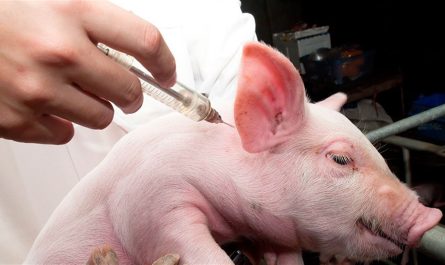Global Autoimmune Polyglandular Syndrome Type 1 Market is a rare autoimmune disorder caused by mutations in the AIRE gene which leads to various autoimmune conditions affecting multiple endocrine glands. The key conditions include chronic mucocutaneous candidiasis, hypoparathyroidism and adrenal insufficiency. Autoimmune Polyglandular Syndrome Type 1 has no cure and requires lifelong management of the associated conditions through hormone replacement and immunotherapy. The growing adoption of newborn screening using dried blood spots and advances in genomic sequencing techniques are enabling earlier diagnosis of the disorder. This is crucial as timely treatment can help prevent life-threatening complications.
The Global Autoimmune Polyglandular Syndrome Type 1 Market is estimated to be valued at US$ 257 MN in 2024 and is expected to exhibit a CAGR of 3.1% over the forecast period 2024 To 2031.
Key Takeaways
Key players operating in the Global Autoimmune Polyglandular Syndrome Type 1 are Pfizer Inc., GlaxoSmithKline plc, Novartis AG, Mylan N.V., Teva Pharmaceutical Industries Ltd., Sanofi, F. Hoffmann-La Roche Ltd., Zydus Cadila, Lupin, Amneal Pharmaceuticals LLC., Cipla Inc., Aurobindo Pharma, Glenmark Pharmaceuticals Limited, Eli Lilly and Company, Sun Pharmaceutical Industries Ltd., Allergan, Bristol-Myers Squibb Company, Takeda Pharmaceutical Company Limited, Abbott, and LEO Pharma A/S.
The growing awareness about early diagnosis and increasing research on developing new treatment options present key opportunities in the market. Advancements in genomic sequencing and newborn screening techniques are enabling more accurate diagnosis of Global Autoimmune Polyglandular Syndrome Type 1 Market Size
Market Drivers
Increasing research funding from government bodies and private organizations for conducting clinical trials is one of the major factors driving growth of the Global Autoimmune Polyglandular Syndrome Type 1 Market. Growing awareness about early symptoms and availability of new screening methods are also augmenting the market growth. In addition, rising healthcare expenditure in developing nations provides impetus to early diagnosis and management of rare disorders like Autoimmune Polyglandular Syndrome Type 1.
Current challenges in the Global Autoimmune Polyglandular Syndrome Type 1 Market
The global autoimmune polyglandular syndrome type 1 market is presently facing few challenges which need to be addressed in order to boost the market growth. Lack of awareness about the rare disease and difficulty in early diagnosis are the major challenges. Since the symptoms of APS-1 resembles with other diseases, it becomes difficult for physicians to diagnose it at an early stage. Delay in diagnosis can aggravate the health condition of patients. Another challenge is lack of effective treatments. Though few drugs are available to manage individual diseases associated with APS-1 but there is no approved drug to treat the syndrome as a whole. Development of novel drugs requires extensive research and high investment which is also a challenge for players in this market.
SWOT Analysis
Strength: Growing research activities for developing new treatment options and diagnostics. Increasing investment by market players to expand their product portfolio.
Weakness: Lack of awareness about APS-1 among general public and physicians. High treatment cost associated with managing the multiple conditions simultaneously.
Opportunity: Scope for development of orphan drugs to treat APS-1 as a single disease. Rising healthcare expenditure in developing nations will boost market growth.
Threats: Stringent regulatory approvals for new drugs and diagnostics. Delay in commercialization increases competition from alternative treatment options.
Geographical Regions
North America dominated the global autoimmune polyglandular syndrome type 1 market in terms of value in the historical period owing to growing prevalence of autoimmune diseases, high healthcare expenditure, and presence of key market players in the region. Europe is another major revenue generating region due to increasing government support for rare disease research.
The Asia Pacific region is anticipated to witness the fastest growth over the forecast period. Factors such as improving healthcare infrastructure, rising medical tourism, and growing disposable income in developing countries will support the market expansion in the region. Expanding patient pool coupled with large untapped market potential makes Asia Pacific highly lucrative for players operating in the global autoimmune polyglandular syndrome type 1 market.
Note:
1. Source: Coherent Market Insights, Public sources, Desk research
2. We have leveraged AI tools to mine information and compile it


